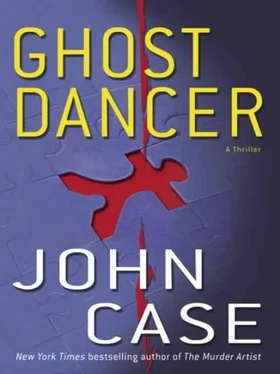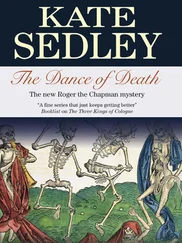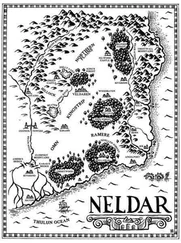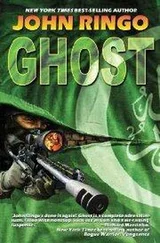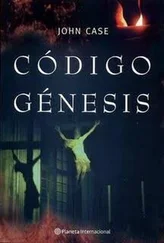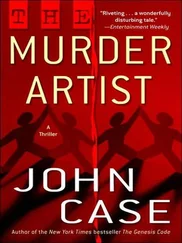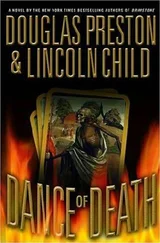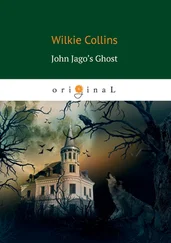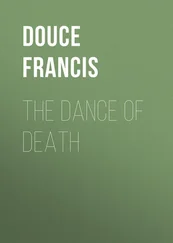Burke sat where he was. What was he supposed to say? “Look, Mr. Kovalenko, we’ve given you everything we have. What more can we do? Try to understand that from our standpoint, this was a routine transaction. We probably do a dozen of these every month.”
Kovalenko drummed his fingers on the desk. “There’s nothing routine about terrorism,” he hissed. He paused to let this sink in, then sat back in his chair. “Why don’t we go through it again? You get a call from the airport…”
And so it went, for a second time and then a third. Doherty looked like he was dying for a smoke.
“Aren’t you leaving something out?” Kovalenko asked.
Burke thought about it. “I don’t think so.”
The FBI agent slid a slip of paper across the desk.
It was a note from the file, written in Burke’s own handwriting.
Esplanade
Belgrade
“Oh yeah,” Burke said, remembering. “He was going to Belgrade for a couple of weeks. The Esplanade – that’s a hotel. I sent the paperwork there.”
“It didn’t seem odd that this was the only address Mr. d’Anconia provided?”
Burke shook his head. “He said he’d be traveling. And he didn’t want any other mail sent to him, just the banking papers. I put him on the Hold Mail list. A lot of our clients-”
“I’ll bet!”
Burke was beginning to lose it. Turning in his seat, he asked Doherty, “Tell me something: When did Ireland become the fifty-first state?”
The Kerryman chuckled. “We’ve had our own troubles with terrorists, Mr. Burke. I’m sure you’ve read the papers. And after that unpleasantness of yours – I mean the World Trade Center, of course – cooperation seemed to be in order.”
Burke gritted his teeth.
Kovalenko snorted his contempt. “There’s only one reason to be on a Hold Mail list: to hide assets. Isn’t that right?”
“No,” Burke told him, “that isn’t right. Different people have different reasons for wanting to be anonymous.”
“Oh, I agree,” Kovalenko told him. “Some of them are terrorists, some of them are drug dealers. Most of them probably just want to cheat on their taxes!”
Burke shook his head. “There are lots of reasons to set up offshore, and there’s nothing wrong with avoiding taxes. That’s just common sense.”
“I’ll tell you what’s common sense,” Kovalenko promised. “A little due diligence. You ever investigate a client?”
Burke shook his head.
“Not your business,” Kovalenko suggested.
“In fact, it’s not.”
Kovalenko made a noise deep in his throat, and it occurred to Burke that the FBI agent was growling.
“You know,” Kovalenko told him, “we had the chief of police in Belgrade visit the Esplanade.”
“Good,” Burke said. “That’s exactly what I would have done.”
“For your information, our Mr. d’Anconia stayed there for two weeks, and when he left… that’s all she wrote. No one’s seen him since.”
Burke had an idea. “What about his passport? There’s a photocopy in the file, I’m sure. Isn’t there-”
“Some kind of emergency contact?”
Burke nodded.
“We thought of that,” Kovalenko assured him. “The address in the passport turns out to be a restaurant in Santiago. El Pollo Loco. Which means…” He turned to Doherty. “Can you tell us what it means, Inspector?”
“Certainly,” the Kerryman said. “It means the ‘Crazy Chicken.’ His emergency contact is the Crazy Chicken in Santiago, Chile.”
“I guess you didn’t bother to check that,” Kovalenko added.
“No,” Burke said. “I didn’t check that.”
“He just walked in and out of your office – is that about it?”
“Something like that,” Burke replied.
“And that’s everything you remember?”
“Let me think,” Burke said. But when he closed his eyes to concentrate, he was blind with fatigue. An enormous yawn convulsed him. He tried to stop it, but he couldn’t. A tidal wave of jet lag rose inside him.
Kovalenko went over the edge. “Let me see your passport!”
“What?”
“Your passport. ”
Burke fumbled the passport out of his pocket and handed it over.
Kovalenko snapped open his attaché case. Removing an ink pad and a metal stamp, he rocked the stamp back and forth in the ink, then brought it down with a thump on the passport page with Burke’s picture on it.
Burke gasped. “What are you doing ?”
“I’m endorsing your passport,” Kovalenko muttered, taking a pen from his pocket to sign and date the endorsement. Then he flipped the passport in Burke’s direction, making sure it didn’t quite reach him.
Burke retrieved the passport from the floor, and opened it. In burgundy letters, emblazoned across the page, were the words:
Valid only for travel to the United States
“Wait a second,” Burke sputtered. “You can’t do that!”
“I already did,” Kovalenko smirked.
“But… why?”
It was Doherty who answered. “Because we’d like you to stick around for the trial. We’ll need you to give testimony.”
“What trial?” Burke asked.
Kovalenko smiled. “Republic of Ireland versus Aherne.”
Burke blinked. “Aherne! Since when is Tommy on trial?”
“He got the papers about an hour ago,” Kovalenko announced.
“For what? What’s the charge?”
It was Doherty’s turn, and he seemed to be enjoying it. “Money-laundering. One count.”
“What are you, out of your mind?! Tommy didn’t have anything to do with it. I was the one who handled the paperwork. It’s my name on the file. Tommy never even met the client!”
Kovalenko shrugged. “Yeah, well, it’s his name on the door.”
Burke came out of his seat like he was on springs, lunging at the FBI agent. Kovalenko shot backwards in his chair, its wheeled casters squealing across the floor. Doherty threw himself on Burke’s back, locked him into a bear hug, and dragged him away.
Kovalenko sat in his chair with his back to the wall, breathing hard, rubbing at his arm. “That’s rich, you comin’ after me.”
Burke looked him up and down. “Yeah,” he said. “Thinka that.”
DUBLIN | APRIL 4, 2005
Burke couldn’t believe it.
The company shut down, his passport void, the old man indicted… and all because this dick, Kovalenko, was an Ayn Rand nut with a hatred for offshore companies. The suggestion that he and Tommy were somehow in cahoots with d’Anconia, whoever d’Anconia was, was ludicrous. He could barely remember the guy. The real problem was that Kovalenko had taken an instant dislike to him. It was as simple as that.
And as complicated.
Burke had a way of rankling people in authority, people like Kovalenko who wore their self-importance like a badge of honor. There was something in Burke’s stance, something in his attitude, or in his eyes, that just… wound them up. It would have been funny, it would have been a gift – but it tended not to end well.
Kovalenko was putting the screws to them because he could. The case would never come to court because, when you got right down to it, Burke had done everything by the book – no matter who the client was.
But in the meantime, Aherne & Associates was closed and the old man was in trouble.
Obviously, Kovalenko enjoying rattling people’s cages – no matter who they were or what they’d done (or hadn’t done). It was just an exercise in power. Like the business with Burke’s passport. That was hardball. But it was hardball the way weenies played it.
Day after day, Burke did everything he could to persuade the Garda that it had made a mistake. He phoned, he wrote, he bombarded Doherty and Kovalenko with e-mails. He even showed up in person to plead Aherne & Associates’ case. But none of it was of any use. He appealed to Inspector Doherty’s sense of decency, but that only seemed to confuse him. So he tried a different tack: patriotism. Surely, Irish authorities could do something to protect Irish businesses. Surely, the Irish wouldn’t let a foreign power push them around.
Читать дальше
